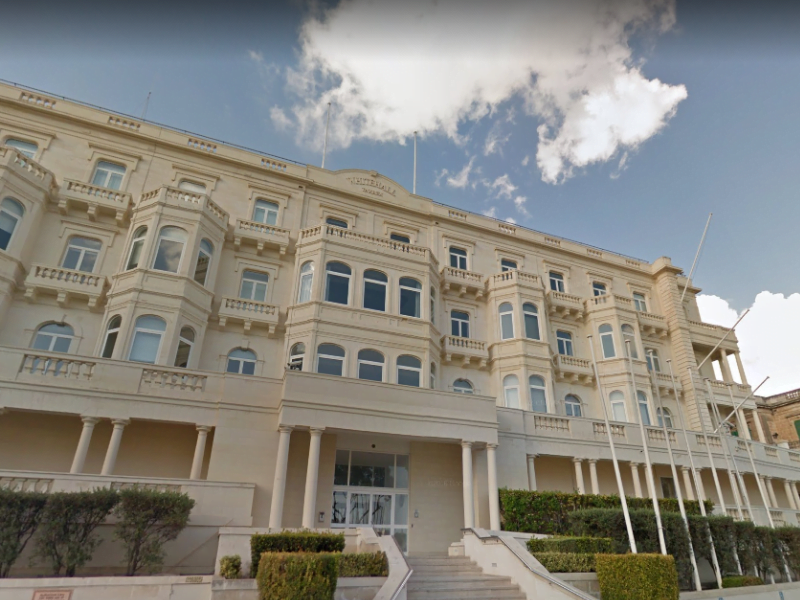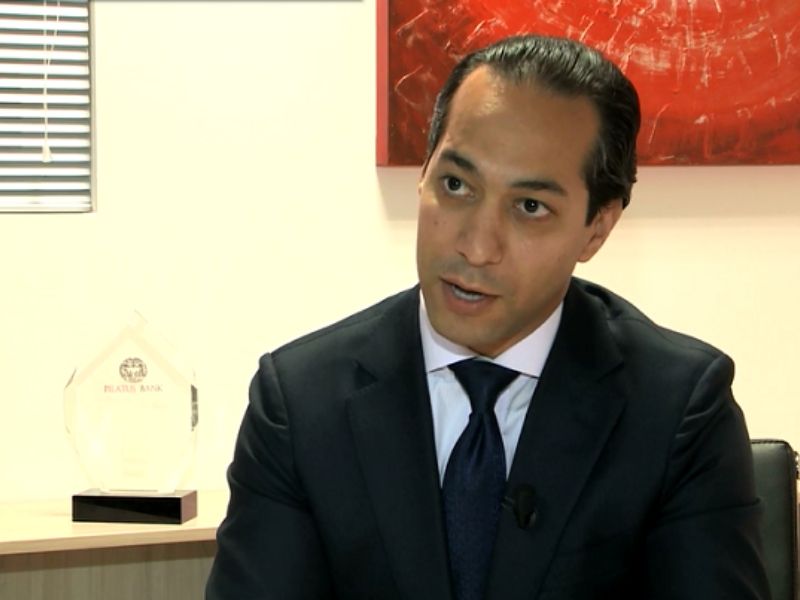The prosecution in the case of Ali Sadr Hasheminejad’s case insisted it did not act in “bad faith” after withholding information from the defence which led to the sanctions-busting case being dropped.
The US Attorney’s Office in New York has filed a reply following a harsh order by the US judge on the case which demanded the prosecution explain what led to the possible violation of the Brady rules, which refer to the obligation of the prosecution to provide any exculpatory evidence to the defence team.
The Assistant United States Attorney (AUSA) presented the replies in a detailed 19-page document, identifying all the lawyers involved in the case and providing replies to all of the judge’s questions. Ali Sadr’s lawyers immediately submitted their own reply.
The US Attorney’s reply stated the government believed that all “disclosable material” had been passed on to the defendant. The only material which was not disclosed to the defence counsel were documents deemed as “still classified”.
The prosecution made particular reference to document GX 411 which it described as a “key break point” that generated “cascading negative consequences”.
Ali Sadr is the former owner of the now-defunct Pilatus Bank in Malta.
On full disclosure
GX 411 refers to documentation related to an investigation by the District Attorney of New York (referred to as DANY) into Commerzbank and its role in transferring millions of US dollars prohibited under US law.
“The government disclosed GX 411 within one day after realising it had not been previously disclosed; and we do not believe any of the attorneys on the case recognised any exculpatory value of this exhibit to the defence until the defence itself raised the issue,” the US Attorney wrote.
“Even in retrospect, it appears that, absent knowing some specific reason to look, the DANY and SDNY Commerzbank investigative files would not be considered as files that should have automatically been searched for matters to be disclosed in this case. And in fact, the AUSAs assigned to this case had no knowledge of the Commerzbank investigations until the events of this year.”
The AUSA reply goes into detail, explaining how Assistant District Attorney Garrett Lynch, who was involved in previous Commerzbank investigations, received an email from the AUSA’s office saying:
“I’m cleaning up email and came upon this. Given what defence did today, I think this could be really valuable to put in. Among other difficulties with doing that is the fact that I don’t know that it was ever produced for defence (it’s not in the Commerzbank subpoena production). Garrett – do you know where it came from?”
The same lawyer who tried contacting Lynch then messaged one of her colleagues saying, “I feel like it might be too late to do anything about it, but I can’t believe we all missed that Commerzbank document,” adding, “I have no idea where that letter came from. I don’t think it has ever been produced to the defence”.

Pilatus Bank. Picture: Google Street View
The chat exchange went on until one of the AUSA lawyers wrote: “I’m wondering if we should wait until tomorrow and bury it in some other documents”, to which his colleague responded, “that’s fine too – some of the FATF7 stuff.”
Understandably, the prosecution felt it had to explain the word “bury” in this context.
“Bury, of course, is a trigger word in the context of disclosure, and that is one of the reasons we have scrutinised the production of GX 411 so closely. But the document, which was in fact produced less than 24 hours later, was not buried. While AUSA Lake is endlessly chagrined about this chat, we believe it would go too far to condemn her for a Friday night lapse in thinking regarding a document that was in fact disclosed Saturday afternoon”.
The prosecution emailed the document the following day.
The prosecution also made reference to “other classified material”.
“Given the government’s request for a nolle prosequi, declassification in connection with this case is not likely to occur because components of the US government involved in the handling of the classified information would be unlikely to authorise use of the information in the absence of an active criminal prosecution with attendant Rule 16 obligations.”
Similar to Brady, Rule 16 obliges the government to disclose to the defendant any substance of relevance in a case.
Ali Sadr’s lawyers reply
The defence counsel of the Iranian banker was quick to file a reply 24 hours later saying they were “surprised and disappointed”.
“These new revelations fully justify the relief sought by (Ali) Sadr”, the lawyers wrote. Ali Sadr’s defence is seeking a new trial and to dismiss the case with prejudice.
The defence took particular offence with the word “bury” used in the chat between the colleagues. “That is exactly what they did. A prosecutor’s directive to ‘bury’ a previously undisclosed document can only be viewed as an intentional effort to conceal a known violation of at least Rule 16, if not Brady.”
Ali Sadr’s lawyers also dismissed the claim by the prosecution that the document was indeed “not buried” as double-speak. “Rather, she proposed to ‘bury it’ by hiding it in plain sight, among a raft of innocuous documents,” the defence wrote before saying that this is a “textbook case of bad faith”.
The judge presiding over the case, Alison Nathan, had requested the US Attorney to provide a detailed explanation as to which material had been withheld from the defence team and for the name of each and every lawyer responsible for passing the notification.
The US court had also noted that Ali Sadr had filed a request arguing that the nolle prosequi was not the proper mechanism for dismissal. A nolle prosequi is a formal notice of abandonment by a plaintiff or prosecutor of all or part of the suit.
Out-of-jail ‘gift card’
Financial crime consultant Kenneth Rijock wrote on his blog that the issue is whether this error should result in the dismissal of the criminal charges against the banker, in what is considered as a complex case, and after a guilty verdict is already handed down.
The Iranian national was found guilty on five counts of bank fraud and of breaching sanctions imposed between the US and Iran. The case revolved around a multi-million dollar housing project in Venezuela. He was also found guilty of defrauding the US government.
Ali Sadr was due to be sentenced in August and faced a prison sentence of up to 85 years. However, in a twist to the plot, earlier in June US Attorney Geoffrey Berman told the court that he had decided to drop the case based on issues related to information that was in possession of the US government, which had not been disclosed to Sadr’s defence team.
“Courts do not easily drop criminal charges in a major case, especially after a jury has decided guilt or innocence, unless the Brady violations are significant, and would have been material to either guilt, or punishment,” Rijock writes on his blog.
Rijock also questions whether this move by the US courts is a reward to the Iranian banker for being cooperative with the authorities.
“Has his cooperation risen to the level where the Government desires to reward him with a dismissal of all criminal charges? Though rare, such actions do occur, though they are generally not the subject of media attention, as law enforcement does not openly acknowledge it, lest the public ask hard questions about accountability.”
Then Kenneth Rijock asks whether the tough questions to the prosecutions served for a major favour being given to Ali Sadr.
“Did the Government choose to let discovery violations, which obviously did occur, serve as a convenient reason to give Ali Sadr his Get-out-of-Jail-Free card? Until we have a better understanding of the evidence not provided to defence counsel, we will not be able to answer that question, but we shall be looking into it,” he concludes.
Ali Sadr’s name is as synonymous in the US as it is in Malta. His foothold in Malta, through Pilatus Bank has been at the centre of major scandals in Malta. The bank opened soon after the Labour Party came into power back in 2013. Its licence was withdrawn by the European Banking Authority in June 2018. Despite the numerous serious allegations, the local police force took no action against the bank or its owner.
With the case against Ali Sadr dropped, the Iranian banker could walk free, which is what led to a call by the Daphne Caruana Galizia Foundation for his extradition to Malta. The Nationalist Party also joined the journalist’s family in the call.












